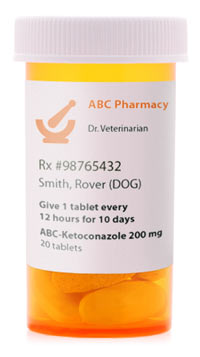Take Steps to Prevent Mix-ups with Pets’ Medicines!
2012-10-9
-

- Packages used for pet medicines may look similar to the packages of medicines for humans.
Many consumers consider their pets to be part of the family. What they may not realize is that a mix-up with a pet's medicine could harm a human family member!
Recently, a consumer reported that an elderly relative had accidently taken the family dog's deworming pills. A family member had placed the dog's pills on a bookcase. Later, the elderly relative moved the dog's pills to a bedside table, where other medicines were being stored. The elderly relative then took the deworming pills, instead of a regularly prescribed medicine, for several days. The mistake was discovered when it was time to give the dog a dose of deworming medicine. The family member found the empty container on the bedside table and realized that the elderly relative had taken all of the dog's pills! When the mistake was discovered, the elderly relative mentioned having felt sick for a few days earlier in the week, without knowing why.
Fortunately, no serious harm occurred in this incident. However, some pets' medicines can be harmful if taken by humans. Also, a person who takes a pet's medicine instead of the medicine that was prescribed will lose the benefit of taking the correct medicine.
Many medicines intended for pets are obtained directly from a veterinarian's office, but some may be dispensed from the local community pharmacy. In either case, the vials used for pets' medicines may look similar to vials used for human medicines.
Here are a few tips to help prevent mix-ups with pets' medicines in your home:
- Store medicines intended for your pet in a separate location from medicines intended for people.
- Store your pet's medicines out of reach of children and adults who may become confused. It is best to use safety locks on any cabinets where medicines and hazardous products are stored.
- Whenever you receive a medicine for your pet, check to be sure it is safely packaged. For example, is the pet medicine in a child-proof container? Is the container clearly labelled "For veterinary use only"? If not, ask your veterinarian or pharmacist to change the packaging to reduce the chance of a mix-up.
- If you or any family members are having trouble keeping track of medicines, talk to a healthcare professional. You can also ask your pharmacist about having medicines specially prepared in properly labelled blister packs or pill organizers.
Note: Medicines intended for humans can also be harmful for pets. Talk to your veterinarian before giving your pet any medicine.
|

